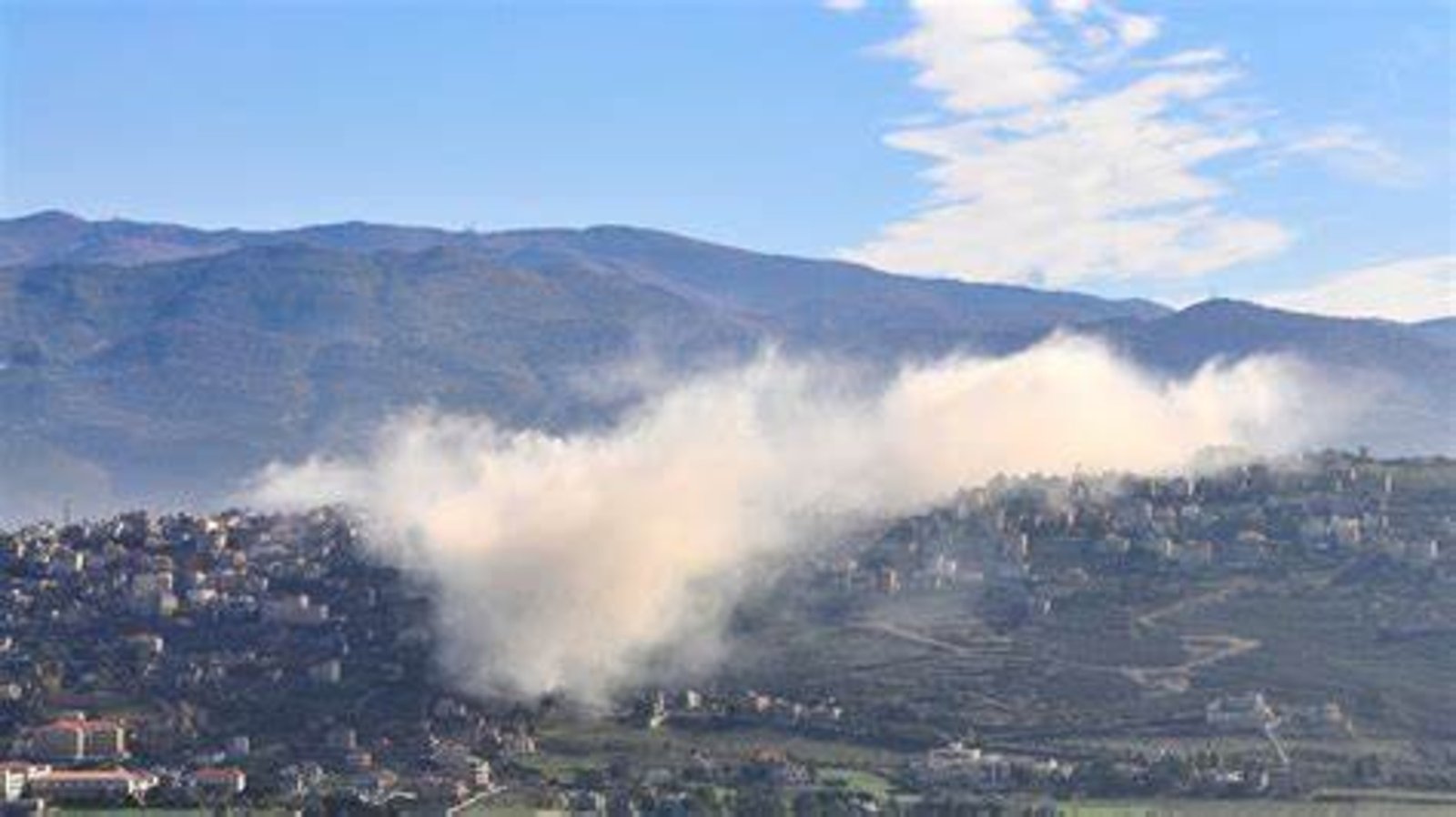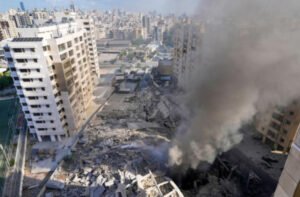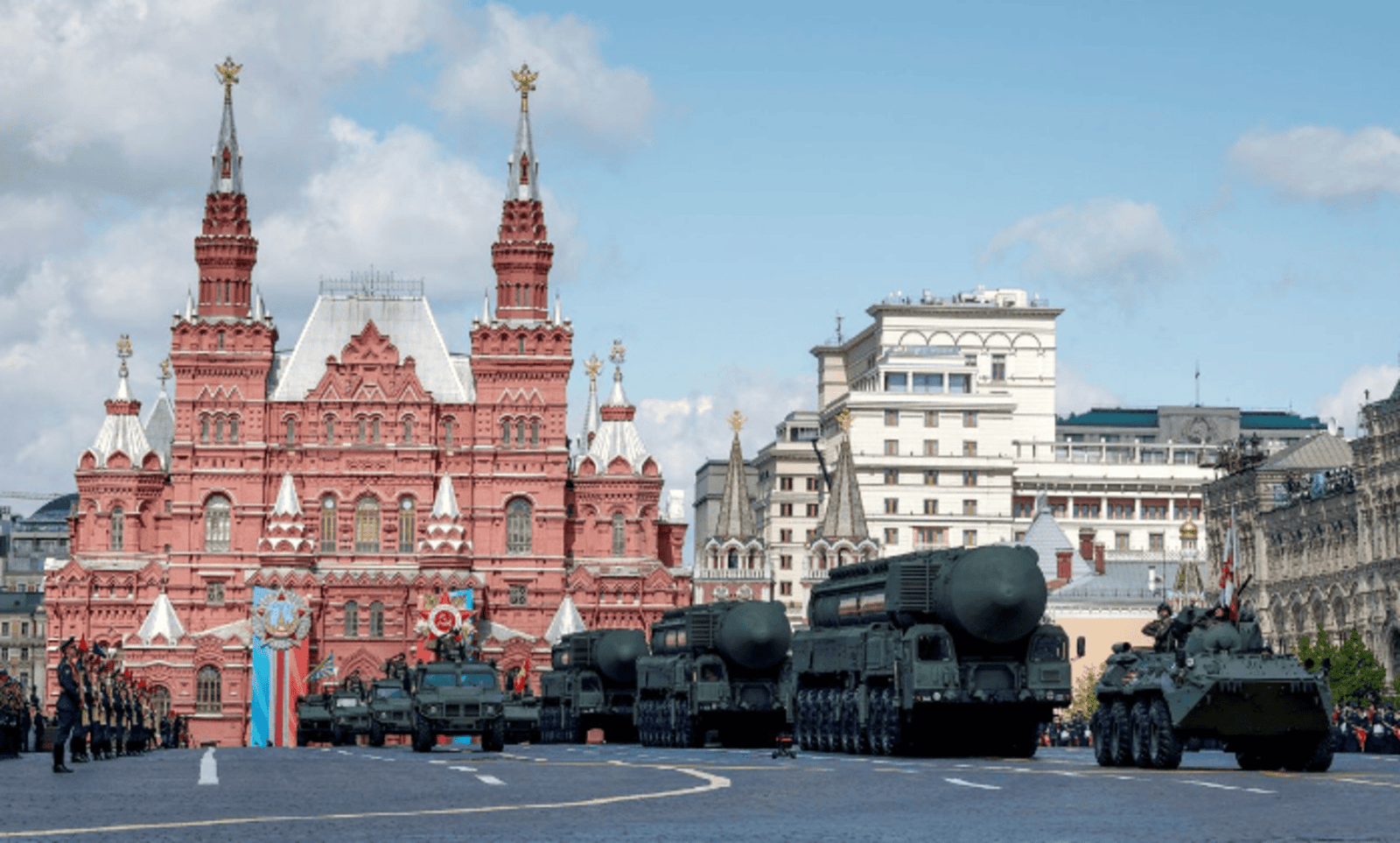
3 Airstrikes enkindle Pressures in Beirut. Tensions Escalate: Israeli Airstrikes Target Beirut
Airstrikes in Southern Beirut
On Thursday afternoon, three Israeli airstrikes struck southern Beirut. The attacks targeted specific neighborhoods, including Haret Hreik. Lebanese state media reported these developments. Large blasts were heard across the city. 3 Airstrikes enkindle Pressures in Beirut
Witnesses also reported the sound of drones overhead. The situation is tense and chaotic. This was communicated via a WhatsApp group shared with reporters.

Airstrikes in Southern Beirut
Responses from Global Leaders
Former National Security Adviser John Bolton reacted strongly to these events. Bolton argued that this stance could embolden Israel’s adversaries.
“Why tell Iran what you will not do?” Bolton questioned during an interview. He believes that Israel needs to act decisively. In his view, a “disproportionate” response is necessary to deter Iran. He emphasized the threat posed by Iran’s nuclear capabilities.
Bolton expressed concern over the current U.S. administration’s strategy. He stated that the administration is paralyzed by fear. The fear of wider conflict is present, but he believes a wider war is already underway.
The Human Cost of Conflict
In related news, a Lebanese soldier was killed during a rescue operation. This incident occurred in the southern town of Taybeh. The soldier was part of a mission conducted with the Red Cross. Another soldier was injured during this operation. The Lebanese Army confirmed these details on social media.
The military reported that the soldier was “martyred” during the attack. Such operations can quickly become dangerous.
Regional Implications
The recent airstrikes and the death of the soldier underscore the rising tensions. This escalation has drawn international attention. Various nations are monitoring the situation closely.
Bolton’s comments reflect a broader debate about U.S. foreign policy. There is a division between those who call for restraint and those advocating for strong military action.
The recent surge in tensions between Israel and Hezbollah has significant implications for the broader Middle East. As military actions escalate, the risk of destabilizing neighboring countries increases. Lebanon, already grappling with economic turmoil and internal strife, faces further complications. An intensified conflict could exacerbate the humanitarian crisis, leading to more displacement and suffering among civilians.
Moreover, the involvement of Iran in this equation adds another layer of complexity. Iran’s support for Hezbollah strengthens its position in the region, potentially emboldening other groups sympathetic to its cause. This could lead to a coordinated response among Iranian allies, increasing the likelihood of multi-front confrontations that would further destabilize the area.
Regional powers are also watching closely, aware that escalations in Lebanon could spill over into their territories. Countries like Syria, which has its own fraught relationship with Israel, may find themselves drawn into the conflict. Additionally, Gulf states, which have been working to normalize relations with Israel, might reassess their positions if violence escalates, potentially leading to a realignment of regional alliances.
Future Outlook
As tensions rise, the question of Israel’s response remains critical. Will Israel escalate its military actions? Or will it heed calls for restraint? The global community is watching closely.
Analysts warn that any misstep could lead to a larger war. This reality weighs heavily on diplomatic discussions.
The future of the region hangs in a delicate balance, marked by rising tensions and unpredictable developments. As Israel continues to respond to perceived threats from Iran and its proxies, the possibility of an expanded conflict looms large. The airstrikes in Beirut signal a shift in Israel’s military strategy, potentially leading to more aggressive actions aimed at curbing Iran’s influence in Lebanon and beyond.
International reactions will play a crucial role in shaping the dynamics of this situation. The United States, under President Biden, faces a complex challenge. Balancing support for Israel while urging restraint is a tightrope walk that could alienate various factions. If the U.S. continues to push for measured responses, it may embolden Iran and its allies, leading to further escalations.
Simultaneously, Hezbollah’s responses to these strikes will be closely monitored. The group has historically shown resilience and a willingness to retaliate when provoked. Any retaliatory actions could spiral into a broader conflict, drawing in regional powers and potentially disrupting the already fragile geopolitical landscape.
Moreover, the humanitarian impact cannot be overlooked. The civilian population in Lebanon faces increasing danger as military operations escalate. The risk of civilian casualties and infrastructure damage raises urgent concerns about humanitarian conditions. International organizations may call for ceasefires or humanitarian corridors to mitigate the suffering.
In this uncertain environment, diplomatic efforts will be essential. Engaging key stakeholders in dialogue may help de-escalate tensions. Regional players, such as Egypt and Saudi Arabia, could facilitate discussions aimed at reducing hostilities.
Ultimately, the future of Lebanon and Israel will depend on a combination of military strategy, international diplomacy, and grassroots resilience. The next steps taken by both sides will be critical in determining whether the region descends into further chaos or moves towards a more stable resolution.
Conclusion
The situation in Lebanon and Israel is complex and fraught with danger. Airstrikes and military actions have serious implications. Both regional and global stability are at risk. As leaders navigate this crisis, the lives of many are affected. The outcome remains uncertain as tensions continue to mount.








